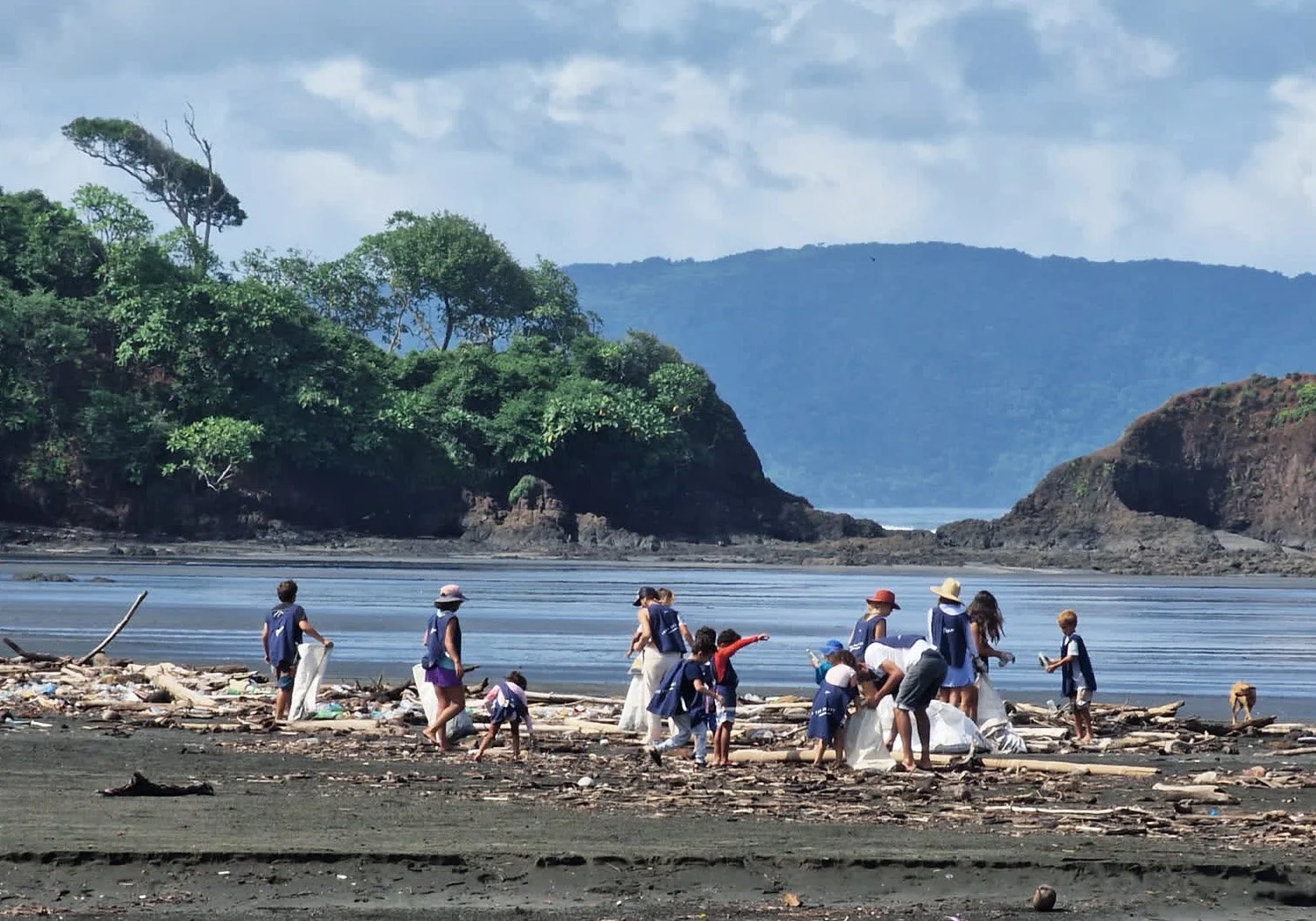Listed as a UNESCO World Heritage site in 2005, Coiba National Park in Panama is home to 38 islands surrounded by 430,825 acres of biodiverse, tropical waters. Despite its protected status, this Pacific paradise faces threats from huge quantities of lost and discarded fishing nets – which regularly entangle and kill marine life. Intercepting these ghost nets is the core focus of our program in Panama, alongside educational cleanups and local training.
One of our main goals through cleanups above and below the Ocean’s surface is to change the mentality of ‘out of sight, out of mind’. We want people to realize there is no ‘away’
Ben Harris – Parley Panama
THe dangerous job of intercepting ‘ghost gear’
The Eastern Tropical Pacific Marine Corridor includes the Cocos Islands (Costa Rica), Galapagos Islands (Ecuador), Malpelo (Colombia) and Coiba (Panama) and serves as an essential ‘superhighway’ for marine life. Pacific pelagic species rely upon this corridor for migratory paths and breeding, and it thus contains an incredible variety of endemic species. Illegal fishing in protected marine sanctuaries is an immediate, direct threat to the survival of these species. Expansive fishing nets and long lines are lost to the sea, where they continue to entangle and kill off marine life.
Taking direct action against this type of ghost gear, Parley Panama unites diverse communities in direct action to clean and protect the waters around Coiba National Park and beyond. The team’s primary objective is to locate and remove ghost nets in key marine zones to eliminate these immediate threats to marine life. Through his NGO Panama Ghost Net, Ben Harris and his team of experienced technical divers collaborate with local boat captains, coastal communities, Coiba National Park rangers, fishermen and recreational scuba divers to locate and remove ghost nets and execute marine rescue operations on the Pacific Coast of Panama. Some nets can be recovered from shallower waters, but much of the work can only be done by expert divers, since it requires deep dives from 30-70 meters, technical knowledge of float bags and awareness of the dangers of getting entangled in the same nets and lines which trap and kill marine species like sharks, turtles, rays and fish.
EDUCATIONAL cleanups and expeditions
For those who live in and visit this part of Panama, our team also organizes excursions to discover marine biodiversity firsthand and help protect it via beach cleanups, coastal interception and fishing net retrieval missions. Open to all, these events help educate and inspire – with participants getting a hands-on education in local marine life and the threats facing this biodiverse marine region. Past expeditions have included trips to Gobernadora Island, Cebaco Island and Playa Estero in Santa Catalina. If you’re in Panama and would like to join a future trip, please contact Ben via email.
LOCAL TRAINING AND INTERNATIONAL Advocacy
Beyond working with experts and visitors alike, Ben and the team are working to educate, train and equip local residents with the skills and knowledge to tackle the ghost gear they encounter in the waters around their home islands. The benefits of this training are twofold – with locals gaining skills to contribute to net interception and, in doing so, becoming ambassadors for the oceans. Witnessing the massive, entangled ghost nets up close, at depth, gives staff a new perspective on the threats facing Coiba and helps inspire lasting change in these communities.
With his firsthand knowledge of these issues, Ben has also contributed to forums and reports ranging from the UNESCO assessment of conservation in the park to the CITES conference in Panama City in 2022. A vote on proposal 37 to list all requiem sharks on CITES Appendix II was passed by a 2/3 majority, along with a recommendation to put hammerhead sharks on the protected list. As Ben caveated at the time, “while this hopefully will help sharks as far as export from Panama goes, this does not help the 500,000 baby hammerheads still being legally slaughtered in gill-nets each year along the coastline of Panama. We will continue to work in the waters of Coiba while pushing for long-term, systemic change.”
SUPPORT Parley’s WORK
Your support helps us tackle plastic pollution and other threats facing the oceans. All donations go directly to our global teams, helping to fund cleanups, education and infrastructure projects.

Thank You to ALL our Collaborators IN PANAMA
PARLEY PANAMA 🇵🇦
Parley’s global network works to protect marine environments from plastic pollution and other threats. Through collaborative cleanups with local businesses and organizations, our teams and volunteers intercept plastic waste from beaches, remote islands, rivers, mangroves and coastal communities. Each country team shares our vision for healthier oceans globally, and works locally to champion the Parley AIR Strategy.
Since the inception of Parley for the Oceans, our teams and volunteers have intercepted over 10 million kg of debris and cleaned 2.4 million square meters of coastline. We’ve also launched an extensive educational program, both virtual and physical. Our global cleanups
and educational initiatives have reached over 1 million participants across 66 different countries and counting.







